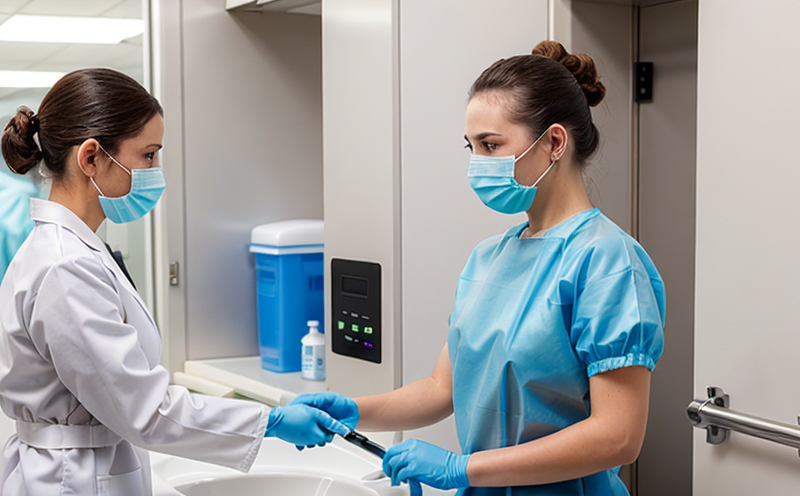Antibacterial testing of personal protective equipment textiles
The demand for Personal Protective Equipment (PPE) has surged in recent years due to increased awareness about hygiene and safety. Among the various types of PPE, textiles play a crucial role in providing protection against pathogens and contaminants. Antibacterial testing ensures that these textiles effectively inhibit bacterial growth, thereby enhancing the wearer's safety and reducing the risk of infections. This service is particularly important for sectors such as healthcare, defense, and manufacturing, where hygiene and sanitation are paramount.
Antibacterial testing involves a series of laboratory procedures aimed at evaluating the antimicrobial efficacy of textiles used in PPE. The process typically begins with selecting an appropriate bacterial strain, followed by inoculating the textile sample under controlled conditions to assess its ability to inhibit microbial growth. This service is essential for ensuring that the materials meet stringent hygiene standards and are fit for purpose.
One of the key challenges in antibacterial testing is achieving consistency across different test protocols and environments. To address this, international standards such as ISO 20743:2019 provide a robust framework for conducting these tests. These guidelines ensure that the results are reproducible and comparable, which is critical for regulatory compliance and product reliability.
The testing process itself can vary depending on the type of PPE textile being evaluated. For instance, fabric samples may undergo different treatments such as chemical finishes or coatings to enhance their antimicrobial properties. The laboratory uses advanced instrumentation and techniques to simulate real-world conditions that the textiles will encounter during use. This includes exposure to various environmental factors like humidity, temperature, and abrasion.
Once the tests are completed, detailed reports are generated for each sample, providing comprehensive data on its antimicrobial performance. These reports often include information on the bacterial strains used, the test conditions, and the results obtained. They also highlight any areas where improvements can be made to enhance the textile's effectiveness.
For quality managers and compliance officers responsible for ensuring product safety and efficacy, this service offers invaluable insights into the performance of their PPE textiles. By leveraging the expertise of a specialized laboratory, they can make informed decisions about material selection and production processes. This not only enhances the overall quality of the products but also contributes to greater public trust and confidence in the industry.
R&D engineers benefit from this service by gaining deeper understanding into the mechanisms behind effective antibacterial treatments. They can use this knowledge to innovate and develop new materials that offer superior protection against pathogens. Meanwhile, procurement teams can rely on these test results when selecting suppliers, ensuring they source only high-quality materials for their PPE products.
The importance of antibacterial testing cannot be overstated, especially given the ongoing global health challenges. By investing in this service, organizations can stay ahead of emerging threats and ensure that their employees are protected at all times. This proactive approach not only contributes to better hygiene practices but also fosters a culture of safety and responsibility within workplaces.
- Ensures compliance with international standards like ISO 20743:2019
- Provides detailed reports on antimicrobial performance
- Simulates real-world conditions to assess material durability
- Facilitates informed decision-making for quality managers and R&D teams





